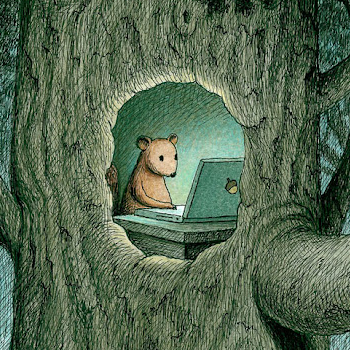The half-life of carbon-14 is 5715 years. How long will it be until only half of the carbon-14 in a sample remains?
1 Answer
5715 years.
Explanation:
By definition the half-life is how long it takes for half of any sample to decay.
After one half-life the remaining half becomes the "input" for further decay, so only half of that half decays during the second half-life; you are then left with one-quarter. Likewise you still have one-eighth left after three half-lives, one-sixteenth after four, etc. It's an exponential decay, not a constant rate of decay.
Incidentally, carbon-14 is not lost forever when it decays. Nitrogen -- maybe including nitrogen produced by the decay of your carbon-14 sample -- can go up through the atmosphere and react with cosmic rays to make more carbon-14, an example of a cosmogenic nuclide. That's why caebon-14 has been around for billions of years on Earth despite having a half-life of only a few thousand years.

